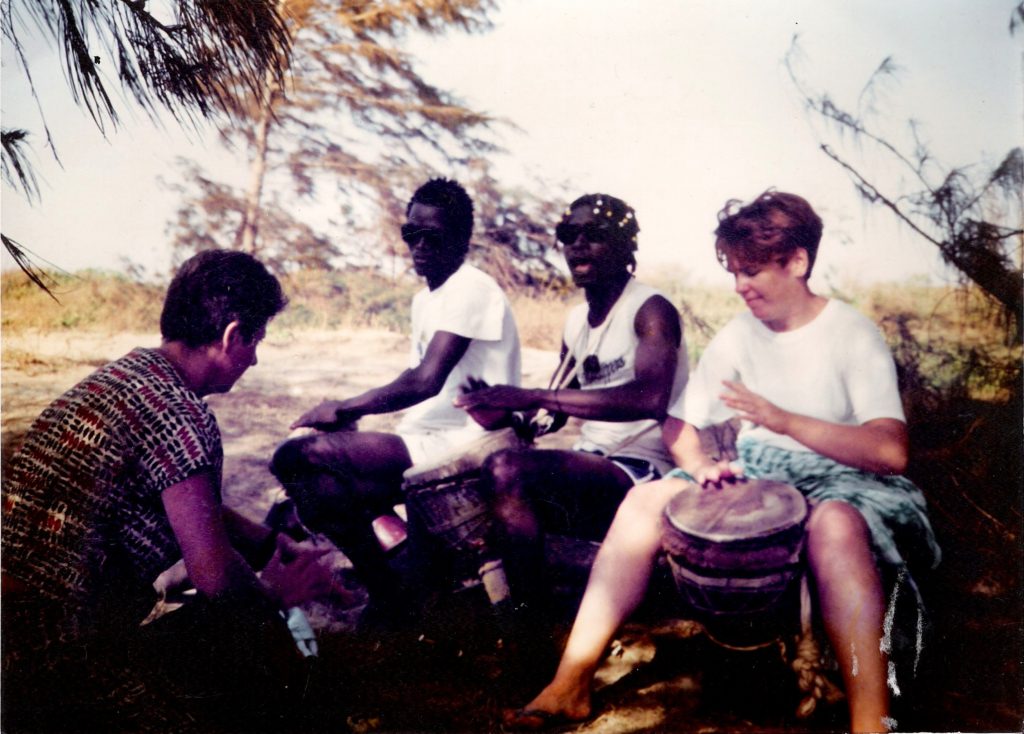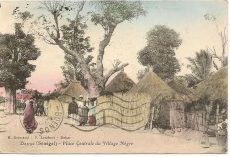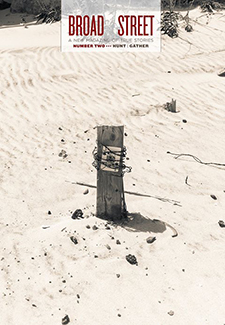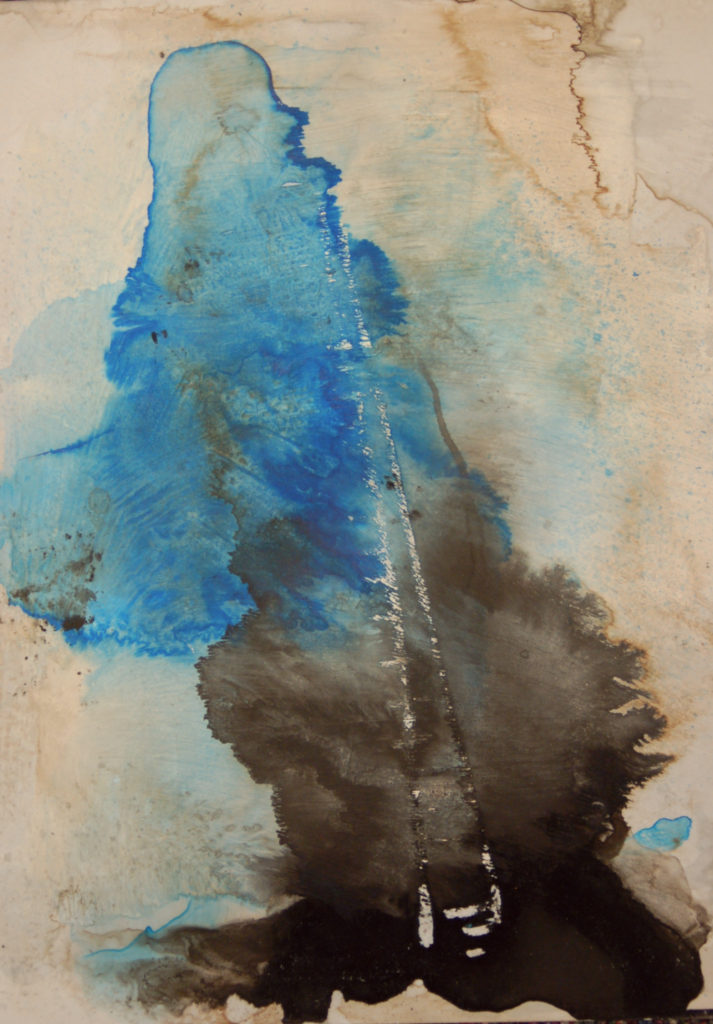BROAD STREET presents this essay (recipient of a Special Mention from the Pushcart editors) from our “Hunt, Gather” issue (fall/winter 2014) … Here’s what happened during one holy season when Patricia Smith, a Fulbright scholar in Senegal, found a sudden war erupting in the small village where she’d been teaching high schoolers and immersing herself in the culture–learning to haggle, joining a drumline.
The conflict began with a tribe’s stray cows and escalated to defy religious faith and family loyalty. Smith was among the expats caught in the middle and forced to evacuate.
This essay was recognized with a 2016 Special Mention from the Pushcart Prize series.
Sample Smith’s experience with the excerpt below, or click here (or on the photo below) to read the complete version, specially formatted for the web.
Smith takes a drum lesson.
*
Living in a small government-owned house in Ziguinchor, in the Casamance region of Senegal, south of the Gambia and near to the border of Guinea-Bissau, I am only now, seven months after my arrival, feeling settled, comfortable. Only now have I begun to adapt to the rhythms of Senegalese life, the demands of teaching fifty and sixty students at once. Now, the market ladies have given me the nickname “Madame Santhiaba,” for the neighborhood in Ziguinchor where I live.
At twenty-eight, a New Englander, I never imagined papaya and mango, drumming the djembé, long Wolof greetings that could make you late for your next appointment. In Senegal, it is best not to have appointments. The pace of life is slow.
These days, now that Ramadan is here, life has slowed more than had seemed possible to me. Only sound has movement. The rest is heat and air and waiting. Waiting first for the new moon that marks the beginning of the fast and the Muslim New Year. Waiting for the sun to set and the shrill call to prayer from the mosques. Waiting, too, for the beginning of the rainy season and the end to this thickness and heat. Even the mangoes hang suspended, full and ripe, ready to drop, expectant. In my courtyard, the bougainvillea bleeds pink, a shock in what is otherwise a kind of black-and-white stillness, a lull in my everyday life. Sometimes it seems that this entire Senegalese year is a lull in my life, a sort of time out, and I have to remind myself that mangi fii rekk, I am simply here—me, an American woman, a neighbor, a teacher….
We’re drumming and I’m gone to a quiet village deep in the Casamance where the women pound manioc and dance and laugh in front of the banyan tree. But then what I hear is not laughter. I stop drumming and so do the others.
Down below, in the street, the sounds of a restless crowd, the swell of a growing murmur like the buzzing of thousands of insects come to devour the village. Glass shatters. Michel, Laurent, Nicole, and I put our drums down and race to the edge of the rooftop. The crowd grows in the dusky light, its collective voice buzzing louder, insistent, angry, covering more land and more. It takes me several minutes to realize that I’m watching people storm the Mauritanian-owned boutique next door to Michel’s.
“We have to do something,” I hear myself say.
“Stop it!” I yell to the crowd below. “Go home!”
Of course, they don’t hear me. The crowd grows and swells. Three or four men, the ones who started it all, maybe, break away and hurl rocks against the boutique, smashing all the windows. Three or four others run forward and begin to tear the wooden shop to pieces.
In the early days, after I had just arrived in Senegal, it was my ritual to stop in that boutique to buy an Orange Fanta, a drink I had never tasted in America. How many times had I spoken with that shop owner and smiled at his wife as she nursed their baby in the tiny room beyond the storefront? I’m close to tears, frantic.
The others say nothing. Michel leans over the edge of the rooftop, Nicole and Laurent quiet behind him, looking. We watch as if it is a film being made before our eyes. Below us, this mob of real people throwing real stones, breaking real glass. Now, in a surge, the crowd rushes forward. They push their way into what is left of the shop and emerge one by one, waving victory prizes: bottles of Coke, packs of cigarettes, plastic bottles of palm oil. A woman scurries at the edge of the crowd, arms loaded with cans of condensed milk.
I tell the others about my students, their calls for revenge.
Baccary and Lamine are not excited. “Tu ne comprends pas,” they say. “The Senegalese and Mauritanians have a long-standing hatred of each other. Historically, we do not get along.”
I keep waiting for the crowd to drag the Mauritanian family, beaten, from their room behind the shop. I search below for my student Boubacar. From the ground where he has fallen, one young boy tosses a bottle….
*
FOR FURTHER READING:
Read the full essay, specially formatted for the web and presented with paintings by Amie Oliver, by clicking on the picture or the title here: “Holy War.”
To find out more about Smith’s approach to telling this story–and her brand-new novel, The Year of Needy Girls, check out her Truth Teller Spotlight on our website.
Read artist Amie Oliver’s Truth Teller Spotlight too!
True stories. Honestly.
Featured image: Vintage postcard of a Senegalese village circa 1909.
sc












